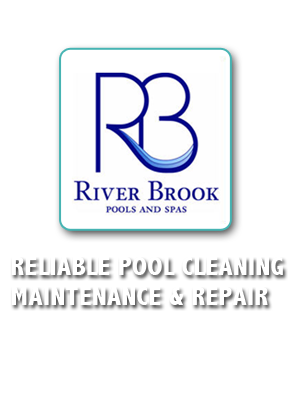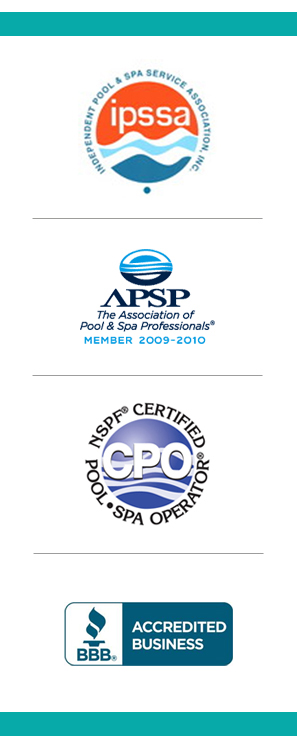Important Chemicals for Proper Pool Maintenance
There are five important chemicals a pool owner must keep track of. These chemicals will help maintain your pool and keep your equipment lasting longer. Without them, you will have an un-swimmable pool, with broken equipment.
Pool Maintenance – FC – Free Chlorine
Free Chlorine is a chemical that keeps your pool free of germs. Maintaining this is of up most importance. If your FC becomes out of balance, the risk of your pool producing algae will increase. If your pool does have algae, or your FC is below zero, then your pool is not safe to swim. The FC should be tested, and chlorine added daily. Great ways to increase your FC include: household bleach, liquid chlorine, and salt water chlorine generators better known as (SWG).
Pool Maintenance – PH – Acidity/Alkalinity
PH must be balanced in order to prevent irritation and to protect pool equipment. PH shows how acidic your pool is, or how basic the water is. Once you gain more experience with your pool, you should check the PH level daily. You want to try and keep your PH level to 7.2 and 7.6. PH levels below 7.2 can sting the eyes can cause damage to parts, including pool heaters. A high PH level can lead to calcium scaling.
Pool Maintenance – TA – Total Alkalinity
TA must be kept at appropriate levels to maintain balance of the PH. Too much TA will lead to high levels of PH. TA will help indicate the waters ability to buffer PH levels. Buffering means you need to use large amounts of chemicals to change the PH. At low TA levels, the PH will swing. At high TA, the PH will likely drift up. Baking soda will help raise the TA levels.
Pool Maintenance – CH – Calcium Hardness
Appropriate levels of CH will help prevent plaster damage. But it is important not to have high levels of CH, for it can cause Calcium scaling. CH measures how much calcium you have in your pool. Low calcium levels will start to dissolve the calcium out of plaster, tile, pebble, concrete, and stone.
Pool Maintenance – CYA – Cyanuric Acid
CYA protects chlorine and will help determine the required level of FC. CYA is a stabilizer. It protects the FC from sunlight, but it lowers the strength of FC. The higher CYA, the more FC you will need. Knowing your CYA level is important to find out if you need to know your FC level. The best way to lower your CYA is to replace your water.


